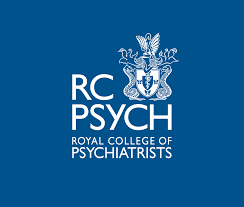Anorexia Nervosa: Recognise the Quiet Killer, Seek Help Quickly and Get Treated

In the modern era, pressure to be thin is immense, originating from the social media “selfie” culture more than ever before. 1.25 million people in the UK have an eating disorder of whom 25% are male. This is increasingly becoming a major problem within the child & adolescent population. Children as young as 6 years of age being diagnosed with severe anorexia; one of the most fatal mental illnesses causing death through starvation, malnutrition or suicide. Less severe forms or if lucky, would still cause bone weakening, growth defects, psychological withdrawal.
Anorexia is a mental disorder that stops people eating in order to lose weight, this results in complete preoccupation with eating (rather not eating), weight and shape. The sufferers develop a distorted sense of their own body image so that they believe that they are overweight when in fact they may be extraordinarily thin and dangerously so. This disease is dangerous and lethal in many cases and debilitating, disabling in most. However, the major issue with this is that it is not only hard to recognise but also encouraged and endorsed within many professions.
- The sufferers may not have an insight into their own eating difficulties and may consider their behaviour “normal” or in keeping with the trend. Unfortunately, thinness can be further reinforced by peers, employers in certain professions and even elders within the family.
- Many of the sufferers do not want to have treatment for the fear of gaining weight. Even in treatment the disorder makes them hesitant or ambivalent towards receiving treatment.
- In many cases, anorexia is not recognised by those even closest to the sufferer due to lack of understanding. In addition, people with anorexia sometimes become experts at camouflaging their obvious weight loss by wearing loose clothing, avoiding being weighed at the doctors’ or eating in front of others to not be detected as suffering from an eating disorder.
- Counts calories excessively
- Misses/ bins meals at home, school and work
- Avoids eating with others
- Weighs self repeatedly or avoids it completely
- Spends inordinate amount of time exercising
- Becomes dizzy, has episodes of loss of consciousness
- Loses large amounts of hair
- Is uncharacteristically irritable
- Inattentive in class
- Becomes socially isolated with very little interest in going out
Disorder Related Blogs
- Anorexia Nervosa: Recognise the Quiet Killer
- Patient Talk - What Does Severe Clinical Depression Feel Like?
- Dear Mum: A Story by an Oaktree Patient with Depression
- SCHIZOPHRENIA – A Poem
- Autism: Dispelling Myths
- Mental Fitness: “I Have an Addiction”
Lifestyle Related Blogs
- Preventing Online Burnout
- Sad at Christmas? Help Is at Hand
- Burnout at Work
- Mental Fitness: How to Beat Stress
- Mental fitness: Brain Stimulation Therapy
- Mental Fitness: When Should You Stop Driving?
- Mental Fitness: “Let Us Talk About It”
- How to Combat Work-Related Stress
- Foods that make you happy
- Business Spending on Mental Health, Worth it?
- Employers Need More Awareness of Mental Health Issues

















